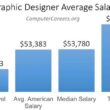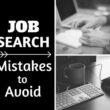Navigating job interviews can feel like traversing treacherous waters, where one misstep could cost you the opportunity. Despite your résumé getting you through the door, it’s crucial to avoid common interview mistakes that could sabotage your chances. In this discussion, we’ll examine critical blunders, such as failing to tailor responses and speaking negatively about previous employers, which can leave a lasting negative impression. By understanding and sidestepping these interview pitfalls, you can enhance your interview skills and increase your chances of securing your desired position.

Not Tailoring Your Responses to the Interviewer’s Questions
One common interview mistake that can greatly undermine a job candidate’s chances of securing an employment opportunity is not customizing responses to the interviewer’s queries. This lack of personalization can suggest to the interviewer that the candidate has prepared generic answers, which may imply a disinterest in the specific role or company. It is crucial to exhibit that you have invested time in understanding the organization and the job role by preparing tailored responses that resonate with the employer’s needs and values.
Moreover, failing to adapt your replies according to the specific questions can lead to another significant interview pitfall: missing the opportunity to showcase your most relevant skills and accomplishments. When candidates neglect to align their answers with the company’s objectives and the role’s requirements, they unintentionally bypass the chance to demonstrate how their unique experience makes them the ideal candidate for the position. To avoid these common interview mistakes, it is vital to listen actively during the interview and construct thoughtful, pertinent responses that underscore your suitability for the job at hand.
The Dangers of Speaking Negatively About Previous Employers

One of the most detrimental interview mistakes job seekers can make is speaking negatively about their previous employers. Such remarks can quickly raise red flags for the interviewer, indicating potential issues with your professionalism or ability to work in a team. It is crucial to understand that the way you discuss past experiences reflects on your character and can hint at how you might speak about the company you’re interviewing with in the future.
When you fall into the trap of this common interview mistake, it not only casts a shadow on your past work relationships but also potentially signals to the interviewer that you possess an inclination toward conflict or dissatisfaction—attributes that are widely regarded as interview pitfalls. It’s important to keep your responses constructively framed, focusing on what you have learned and how you have developed professionally, rather than dwelling on any negative experiences or conflicts at previous jobs.
Frequently Asked Questions
What are some examples of common interview mistakes?
Some common interview mistakes include arriving late, being unprepared, dressing inappropriately, speaking negatively about past employers, failing to ask questions, not displaying sufficient enthusiasm or confidence, and forgetting to follow up after the interview.
How can dressing inappropriately affect your interview outcome?
Dressing inappropriately can leave a negative first impression, suggest a lack of professionalism, and imply that you don’t understand or respect the company’s culture. It’s important to dress suitably to show that you are serious about the job and fit in with the organizational norms.
Why is being unprepared for an interview a significant mistake?
Being unprepared demonstrates a lack of interest and commitment to the job. It can result in not being able to answer questions effectively, not asking insightful questions, and failing to articulate how your skills and experience align with the company’s needs.
In what way can speaking negatively about past employers impact your interview?
Speaking negatively about past employers may lead the interviewer to view you as unprofessional and a potential source of conflict. It can raise concerns about your ability to work well with others and maintain a positive attitude, which can significantly detract from your candidacy.
How important is it to ask questions during an interview, and why?
Asking questions during an interview is crucial because it shows your interest in the role and company. It also provides you with essential information to help you decide if the job and the company are a good fit for you. Failing to ask questions can be perceived as a lack of curiosity or enthusiasm.
Can failing to follow-up post-interview really affect your job prospects?
Yes, failing to follow up can negatively affect your job prospects because it might indicate a lack of interest or poor business etiquette. A follow-up thank-you note or email is an opportunity to reiterate your interest in the position and can help keep your application top of mind.
What is the impact of not displaying enough confidence during an interview?
Not displaying enough confidence can make it seem like you don’t believe in your own abilities, which may make the interviewer doubt your competencies as well. Confidence helps to convince an employer that you’re capable and assertive enough to handle the responsibilities of the position.








